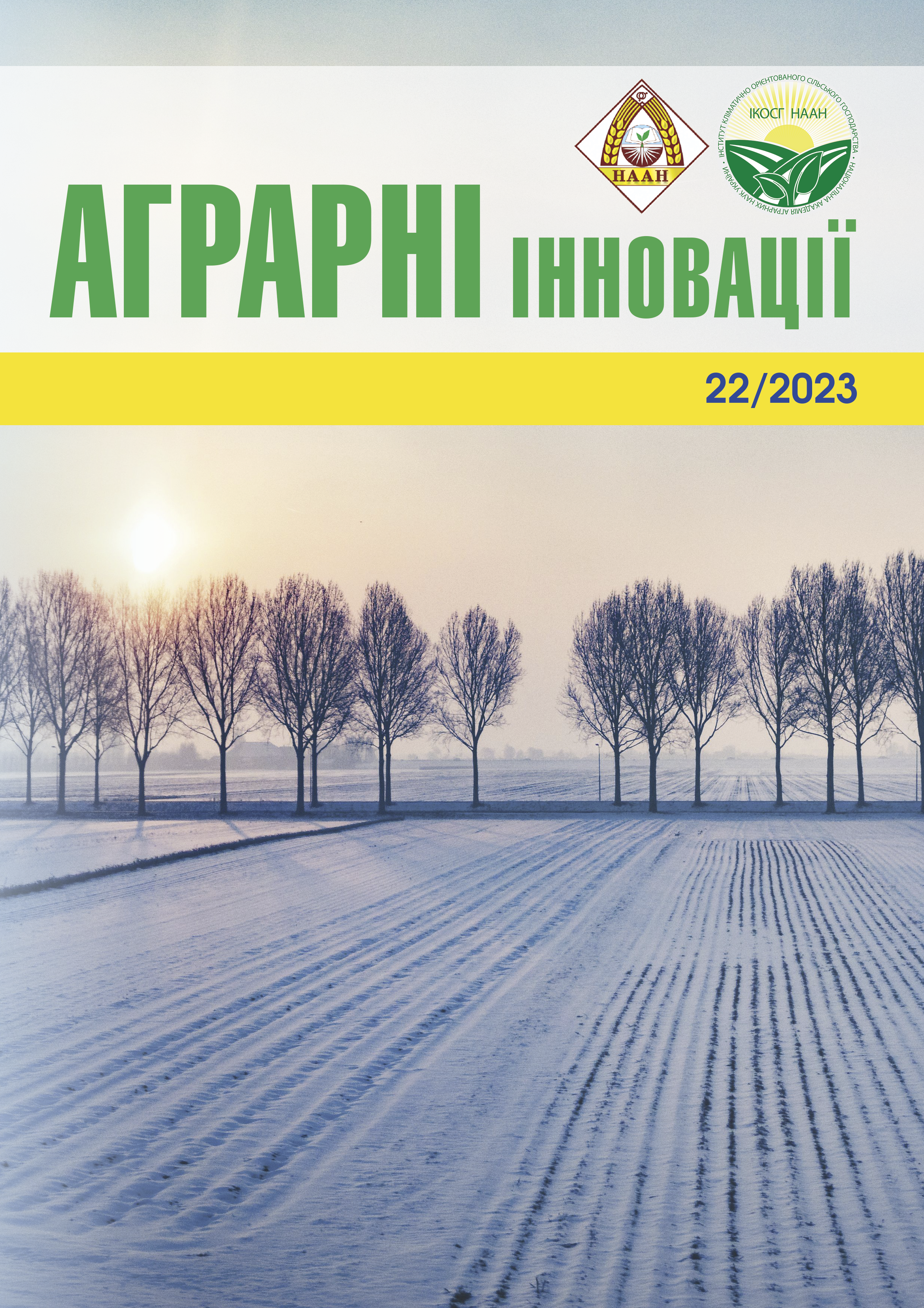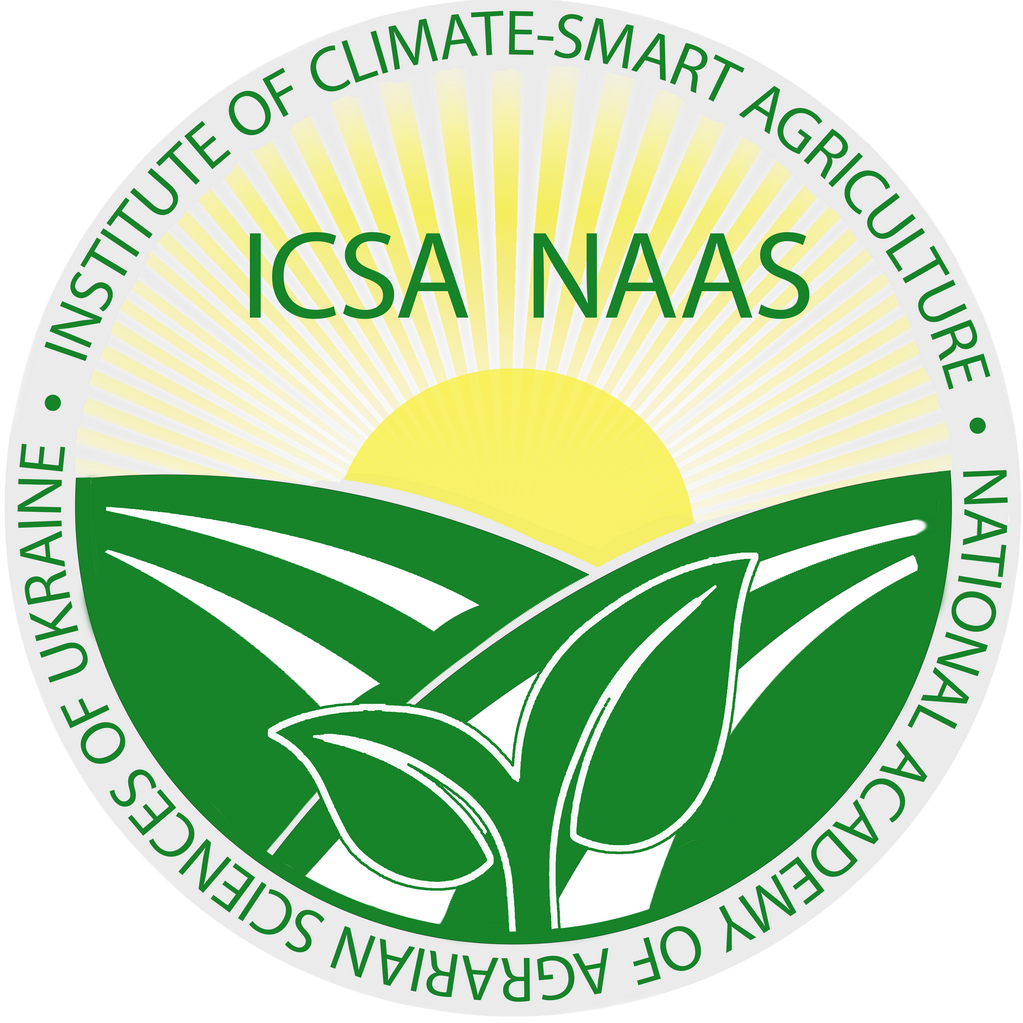PRECISION AGRICULTURE AS A FACTOR OF ECOLOGICAL SUSTAINABILITY AND SOIL PROTECTION
Abstract
The research purpose: to define the role of precision agriculture as a key factor of ecological sustainability and soil protection under conditions of modern agribusiness practices. The research results. Studies confirm that precision agriculture can have a positive impact on ecology and soils, in particular, through reducing an adverse effect on the environment and optimizing the use of resources. Precision agriculture allows agricultural producers to precisely and accurately apply fertilizers and pesticides in the field, avoid overlapping and excessive use. It reduces expenses for chemical substances and minimizes their potential impact on water resources and soil. Modern agro-technological methods including precision agriculture contribute to retaining a fertile soil layer. It reduces a risk of erosion and assists in preserving soil resources. Using precision agriculture, including modern irrigation systems can considerably reduce water expenditure. Systems of automatic irrigation using sensor data and other technologies allow agricultural producers to efficiently retain moisture and avoid additional water expenditure. Implementation of precision agriculture contributes to optimization of utilizing resources such as fuel, energy and fertilizers. It assists in reducing the impact of agriculture on ecosystems and ensures sustainable development. Conclusions. The research shows that precision agriculture can contribute to creation of more ecologically sustainable and sustainably efficient agricultural systems, reducing the impact on the environment and assisting in sustainable use of resources. Though precision agriculture has many positive aspects, it can also have some negative consequences, especially when used without taking into consideration its ecological and social aspects. It is important to take into account these recommendations and develop precision agriculture taking a balanced approach.
References
2. Точне землеробство по-американськи: не впроваджувати інновації – дорого! URL: https://www.agrilab.ua/tochne-zemlerobstvo-po-amerykansky-nevprovadzhuvaty-innovatsiyi-dorogo/ (дата звернення: 21.01.24).
3. John V Stafford. Implementing Precision Agriculture in the 21st Century. Journal of Agricultural Engineering Research. 2020. Vol. 76, Issue 3. Pp. 267-275. https://doi.org/10.1006/jaer.2000.0577
4. Rodrigues, H., Ceddia, M.B., Vasques, G.M., (…), Neves, M.L., Tavares, S.R.L. Remote Sensing and Kriging with External Drift to Improve Sparse
Proximal Soil Sensing Data and Define Management Zones in Precision Agriculture. AgriEngineering. 2023. 5(4), 2326-2348; https://doi.org/10.3390/
agriengineering5040143
5. Pathirana, S., Lambot, S., Krishnapillai, M., (…), Smeaton, C., Galagedara, L. Ground-Penetrating Radar and Electromagnetic Induction: Challenges and Opportunities in Agriculture. Remote Sens. 2023. 15(11), 2932; https://doi.org/10.3390/rs15112932
6. Бурляй А. П., Охрименко Б. О. Точне землеробство як напрям модернізації аграрного виробництва. Modern Economics. 2021. № 29(2021). С. 29-34. DOI: https://doi.org/10.31521/modecon.V29(2021)-05
7. Третяк А. М., Москаленко А. М., Ляшинський В. Б. Світові та українські тенденції розвитку нетрадиційного сільськогосподарського землекористування. Агросвіт. 2022. № 3. С. 19–30. DOI: 10.32702/2306-6792.2022.3.19.
8. Бойко М. О. Органічне виробництво – пріоритетний аспект екологічного розвитку країни. Екологічний стан навколишнього середовища та раціональне природокористування в контексті сталого розвитку : матеріали VI Міжнародної науково-практичної конференції (26–27 жовтня 2023, м. Херсон) / О. А. Дюдяєва, О. Т. Євтушенко; ХДАЕУ. Одеса: Олді+, 2023. С. 29-32.
9. Бойко Л., Бойко М. Біотехнології як елемент екологічних інновацій в агробізнесі. Інноваційні еколого-безпечні технології рослинництва в умовах воєнного стану: Матеріали II Всеукраїнської науково-практичної конференції (Київ 31 серпня 2023 року). 2023. С. 34-36.
10. Бойко М. О. Посухостійкі культури для зернового клину півдня України. Proceedings of the XIV International Scientific and Practical Conference. Copenhagen, Denmark. 2023. Pp. 23-25. URL: https://isg-konf.com/world-trends-realities-and-accompanyingproblems-of-development/
11. Диференційоване внесення добрив URL: https://www.agrilab.ua/services/dyferentsijovane-vnesennyadobryv/ (дата звернення: 22.01.24).
12. Змінні норми висіву насіння. URL: https://www.agrilab.ua/services/zminni-normi-visivu-nasinnya/ (дата звернення: 22.01.24).
13. Розвиток точного землеробства у світі та його вплив на сільське господарство. URL: https://hub.kyivstar.ua/articles/rozvytok-tochnogo-zemlerobstva-u-sviti-tajogo-vplyv-na-silske-gospodarstvo (дата звернення: 23.01.24).
14. Бойко, Л. О. (2024). Виклики та проблеми фермерських господарств у період невизначеності. Проблеми сучасних трансформацій. Серія: економіка та управління, (11). https://doi.org/10.54929/2786-5738-2024-11-04-02
15. Бойко Л. Перспективи розвитку сімейних фермерських господарств в умовах конкурентного ринку. Таврійський науковий вісник. Серія «Економіка».
2020. № 2. С. 78–85.
16. Точне землеробство за умов війни: сенс та економічна доцільність. URL: https://agrobusiness.com.ua/tochne-zemlerobstvo (дата звернення: 23.01.24).






